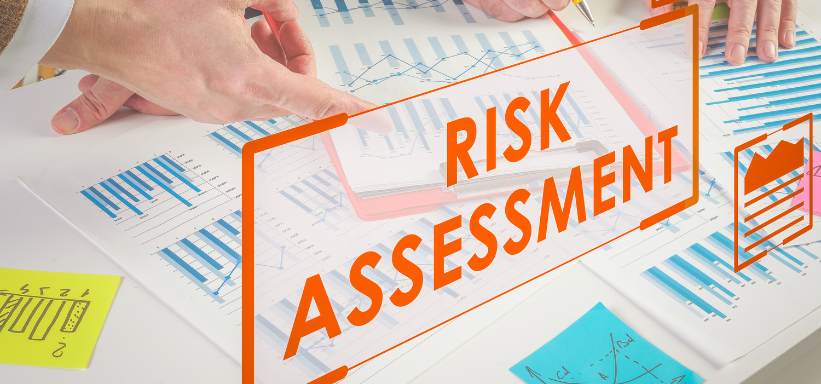Executive Summary
-
Artificial Intelligence (AI) is revolutionizing risk assessment by providing deeper insights and real-time data analysis.
-
Investors benefit from AI’s ability to identify patterns and predict market trends that were previously difficult to detect.
-
AI-powered tools enhance decision-making processes, offering a competitive edge and mitigating potential risks.
-
Despite its benefits, the implementation of AI in risk assessment poses challenges like data privacy concerns and the need for sophisticated infrastructure.
-
The future of investment risk assessment will likely see increased reliance on AI technologies, reshaping traditional methodologies.
Introduction
In today’s fast-paced financial markets, understanding and managing risk is crucial for investors. Traditional methods of risk assessment often fall short in capturing the complexities of modern markets. Enter Artificial Intelligence (AI)—a game-changer that is redefining how investors approach risk. By leveraging AI, investors can make more informed decisions, anticipate market shifts, and reduce potential losses. This article explores the transformative role of AI in investment risk assessment, highlighting its benefits, challenges, and future implications.
Definitions / Context
Artificial Intelligence (AI): A branch of computer science focused on creating systems capable of performing tasks that typically require human intelligence, such as decision-making and pattern recognition.
Risk Assessment: The process of identifying, analyzing, and evaluating the potential risks that could negatively impact an investment.
AI’s integration into risk assessment involves using advanced algorithms and data analytics to predict and mitigate investment risks more accurately.
Benefits / Pros
-
Enhanced Data Analysis: AI can process vast amounts of data quickly, uncovering patterns and trends that humans might miss.
-
Predictive Analytics: Utilizing machine learning models, AI can forecast market movements, helping investors anticipate changes.
-
Real-Time Monitoring: AI systems offer real-time insights, allowing for immediate adjustments and proactive risk management.
-
Cost Efficiency: Automating risk assessment processes reduces the need for extensive human resources and minimizes errors.
Risks / Cons / Challenges
-
Data Privacy Concerns: The use of AI requires access to sensitive data, raising privacy and ethical issues.
-
Infrastructure Requirements: Implementing AI technologies demands significant investment in infrastructure and expertise.
-
Algorithm Bias: AI systems may inherit biases present in the data they are trained on, potentially skewing risk assessments.
-
Regulatory Compliance: Navigating the regulatory landscape is complex as laws evolve to address AI’s growing role in finance.
Implementing AI in Risk Assessment
-
Data Collection: Gather comprehensive and high-quality data sets relevant to investment risks.
-
Algorithm Development: Develop machine learning models tailored to specific risk assessment needs.
-
System Integration: Incorporate AI systems into existing investment platforms for seamless operation.
-
Continuous Monitoring: Regularly update and refine AI models to ensure accuracy and relevance.
-
Compliance Check: Ensure all AI processes comply with current regulations and data protection laws.
A leading fintech company integrated AI into their risk assessment strategy, enabling them to identify market anomalies faster than competitors. By deploying AI-driven analytics, they reduced portfolio risks by 30% over a six-month period, demonstrating AI’s potential to enhance investment outcomes.
— FinTech Innovators
Expert Tips / Strategic Insights
-
Adopt a Hybrid Approach: Combine AI insights with human expertise to enhance decision-making processes.
-
Invest in Talent: Hiring skilled data scientists and AI specialists is crucial for optimizing AI applications.
-
Prioritize Transparency: Clearly communicate AI-driven decisions to stakeholders to build trust and understanding.
-
Regular Audits: Conduct frequent audits of AI systems to ensure they operate within ethical and legal boundaries.
Tools / Resources / Calculators
-
AI Risk Assessment Tools: Explore platforms like IBM Watson for AI-driven investment insights.
-
Online Courses: Consider enrolling in AI and finance courses on platforms like Coursera and edX.
-
Regulatory Guides: Stay updated with AI-related finance regulations through resources like the Financial Conduct Authority (FCA).
Conclusion
AI is undeniably reshaping the landscape of investment risk assessment, offering sophisticated tools and insights that empower investors to make informed decisions. While challenges remain, the strategic use of AI promises significant advantages in navigating the complexities of modern financial markets. For investors looking to gain a competitive edge, embracing AI-driven risk assessment is a prudent step forward.























